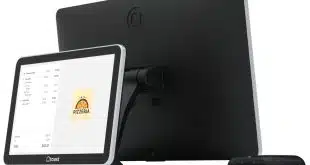Regulatory changes in its European market have hammered Paysafe Ltd.’s digital wallets, chopping the company’s quarter-to-quarter payments volume and revenue and forcing its top executives to spend a good deal of time Thursday morning explaining the impact to stock analysts.
“We are facing challenges in our digital-wallet business. It’s performing below expectations,” chief executive Philip McHugh said during a call to discuss the company’s third-quarter results. He warned “it will take another year to get back to growth” in that unit, which includes Paysafe’s Skrill and Neteller wallets.
The digital-wallet business, which accounts for about 13% of the company’s processing volume, handled just shy of $4 billion in volume in the quarter, down fully 15% from the prior quarter and off 17% from the same quarter last year. “The decline was worse than we expected,” said McHugh, who added the unit began to show significant softness in the second half of the third quarter. As a result, overall volume for the company dipped 4% in the quarter from the prior period to $31.1 billon.

“We had expected digital wallets to grow by double digits, but clearly the performance is lower than we expected. There is no sugar-coating the fact our performance is disappointing,” added Ismail Dawood, Paysafe’s chief financial officer.
The chief culprit, management said, lies in new regulations in Germany and Holland that have restricted users’ ability to deploy Paysafe’s wallets for iGaming. In Germany, which McHugh called “a big market for us,” a new rule imposed a cap on how much an individual can wager, while a new tax on poker games have made the games unprofitable for operators, McHugh said. New rules in the Netherlands, meanwhile, are limiting the range of payment types bettors can deploy, he added. Dawood said the company did not have available numbers on the portion of the company’s wallet business that stems from the two European markets.
Both countries are part of a key market for Paysafe’s digital-wallet business. The Skrill wallet, for example, accounts for a 7% to 10% “cashier share” in European online gaming, McHugh said, adding the share so far in the U.S. market runs from 10% to 15%.
In response, Paysafe is focused on initiatives to streamline its digital wallets to remove friction and make them easier to use, McHugh said, while also pouring investment into the company’s North American gaming market, where no such regulation is on the horizon, he added.
Paysafe’s digital-wallet weakness plunged its stock Wednesday morning, driving it down to lows it hasn’t seen since going public in March as the result of a merger with a special purpose acquisition company. The shares were trading down more than 40% at mid-morning, at $4.42.
Meanwhile, the company’s iGaming business is expanding in North America, McHugh said, with processing having gone live in 19 states so far. Maryland, Florida, and New York will come online next, McHugh told the analysts. “Our strategy remains intact. We’re winning deals in North America,” he said.
Still, transaction volume was up in Paysafe’s other two divisions, eCash and Integrated Processing, which allowed the company to report an overall year-over-year 19% rise in volume. Revenue was down, however, by 1%, to $353.6 million, while gross profit took a 5% hit, to finish at $208.7 million.





